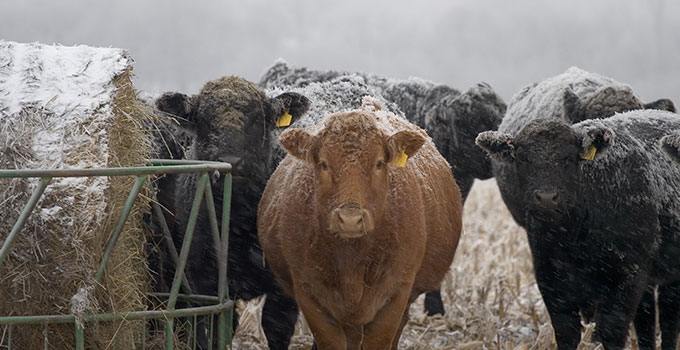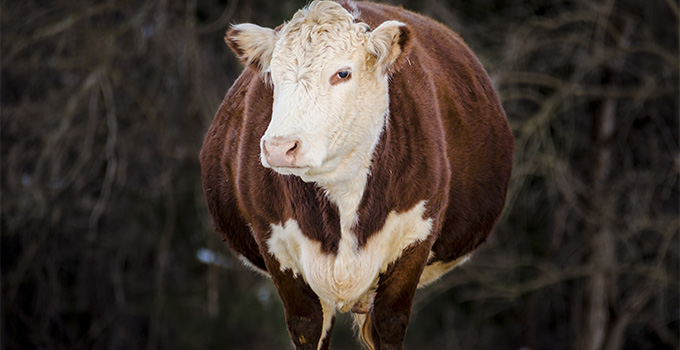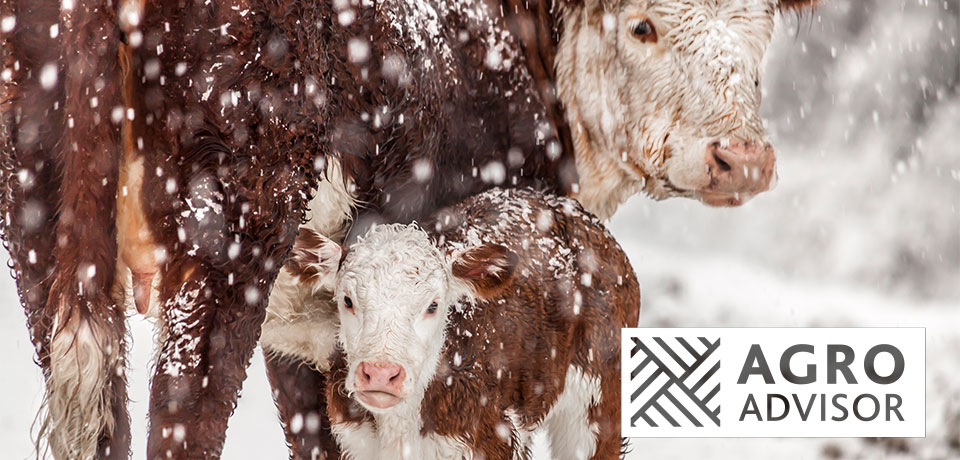Are your cattle starving on full bellies?
Certain growing conditions, such as those encountered this past summer, can lead to poor quality forage, which means your animals’ needs may not be met by the forages available to them.
The effects of inadequate nutrition — especially in pregnant cows and heifers — can have far-reaching effects on both cows and calves. That’s why it’s important for you to test forages for protein, energy and mineral content.
“Cattle can be eating as much as they are physically able to, but, because the quality is poor, their nutrient requirements won’t be met,” said Logan Williams, M.Sc., a Ruminant Nutritionist with Federated Co-operatives Limited, which operates three feed plants that provide important animal nutrition products to western Canadian producers.
“Since forage makes up the bulk of the beef cow’s diet, forage tests provide you with useful information that can make your farm more productive. You’re not going in blind any more.”

Successful calving
In cows and heifers, 70 per cent of fetal development occurs in the last two months of pregnancy. During this time, their nutritional requirements rise dramatically, while their rumen capacity is decreased due to the growing fetus.
Feed quality in this period can affect a cow’s ability to rebreed, as well as the health of the calf and, ultimately, your bottom line.
Proper nutrition before and after calving will result in:
- Healthier calves
- Heavier calves at weaning
- Fewer days to maturity for heifer calves
- Faster return to estrus
- Higher conception rates
“You need to know what your forage quality is and supplement accordingly,” explained Williams, who said it’s easy for producers to overestimate the protein and energy content of their forage or misjudge their animals’ needs for supplementation.
“For example, if cows entering the third trimester need to gain condition, their protein requirement will increase by half to one per cent. Since they cannot eat as much, this protein must be concentrated in a high-protein supplement.”

Have a plan
The best way to ensure a successful breeding season is to provide adequate nutrition during calving. An appropriate late-gestational nutrition program will ensure cows and heifers have the necessary nutrition to support maintenance, growth and lactation, as well as reproduction.
A Co-op Nutrition and Production Consultant can help you submit forage samples for testing and interpret the results, which will inform the decisions you make about your feeding program.
“Feed is one of the biggest variable costs on an operation, so let’s look after it,” said Williams.

